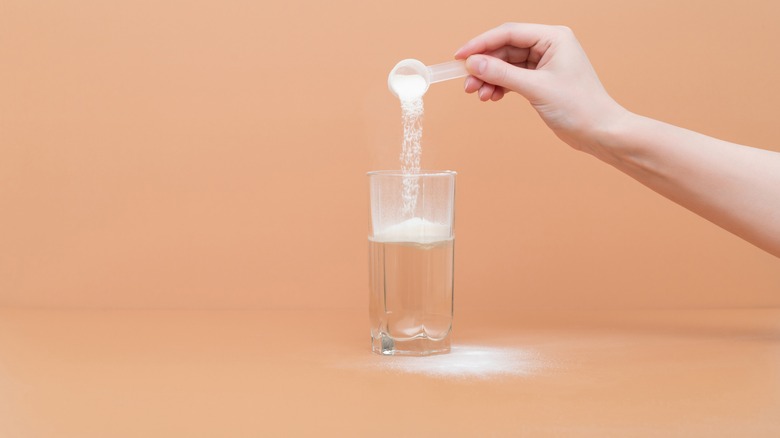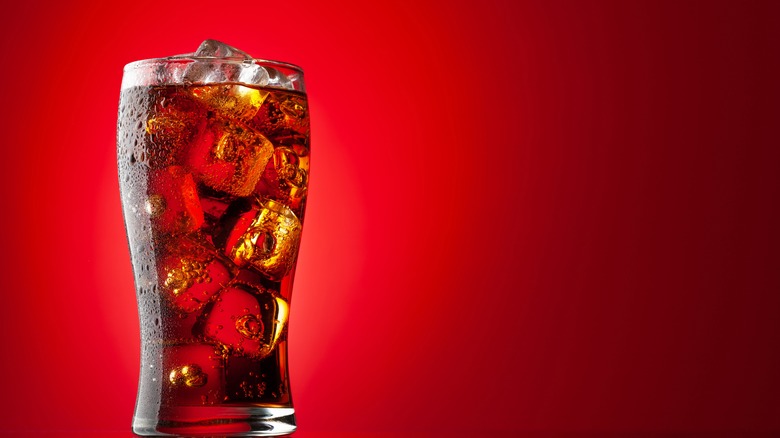Is It Dangerous To Drink Beverages That Contain Sodium Benzoate?
If you've ever flipped over a packaged food item or beverage, the list of unpronounceable ingredients is usually pretty long. We have trust that products do not contain any ingredients that harm us. But every once in a while, a study surfaces, and we learn the powers that be are not infallible. Sometimes we are consuming things that may harm us, as Medical News Today points out.
Many of these additives, such as sodium benzoate per Ingredi, are man-made preservatives that help prolong the product's shelf life. Sodium benzoate helps deter mold and bacteria from growing and provides us with snacks and drinks that maintain their flavor and integrity for years. Sodium Benzoate happened to be the first additive allowed in foods by the FDA.
The FDA has a classification system that ensures we are not overconsuming any potentially dangerous additives called GRAS (Generally Recognized As Safe). This means it is safe when used in the small amounts it's intended for. But just how safe is it, and is it something you should keep on your radar as you scan labels?
Proceed with canned caution
It sure is. Sodium benzoate is a powder that's made by combining benzoic acid with lye, also called sodium hydroxide. This combination does not occur in nature, but benzoic acid can be found in some fruits, plants, and fermented foods.
On its own, sodium benzoate is harmless. What causes trouble is when it's added to products containing vitamin C or ascorbic acid, as it's commonly called on food labels. When these two substances meet, they can turn into benzene, a known carcinogen. This combination is commonly found in soft drinks and is particularly a concern with diet sodas as sugar seems to blunt some of the negative effects of the duo. (via FBC Industries).
In addition to possibly forming a carcinogen, a 2016 study published in Physiology International linked the additive to tissue inflammation. A 2014 study published in Sage Journal found a correlation between sodium benzoate consumption and ADHD. A decrease in leptin, which controls appetite, was concluded in a 2011 study from the British Journal of Nutrition, and free radical formation resulted in a 2014 study via Scientific World Journal.
While deemed safe in specific amounts by the FDA, and more studies are needed to draw further conclusions on any purported dangers, it's always best to do your due diligence and read labels when your health is at stake.

